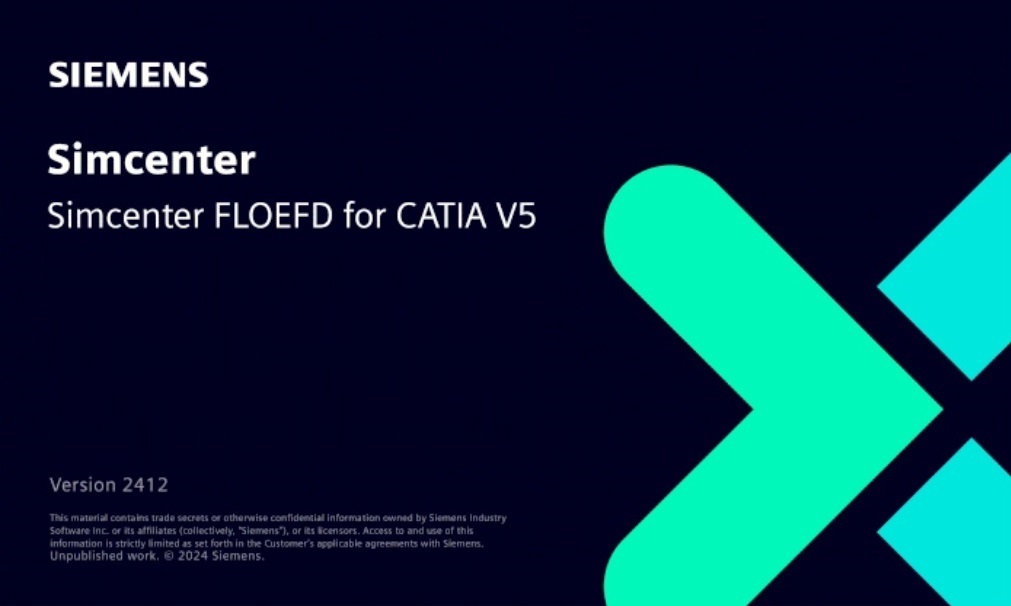
Bit depth : 64bit
Interface language : English, German, French, Chinese, Japanese, Russian
Tablet : Present (TeAM SolidSQUAD-SSQ)
System requirements :
– Microsoft Windows 10 Pro or Enterprise 64-bit (tested with v1909), Microsoft Windows 11 Pro 64-bit (tested with v21H2)
– For solver: Microsoft Windows Server 2012, Microsoft Windows Server 2012 R2, Microsoft Windows Server 2016,
Microsoft Windows Server 2019, Microsoft Windows Server 2016 with HPC Pack 2016, Microsoft Windows Server 2019 with HPC Pack 2019
– Microsoft Office 365, Microsoft Office 2019, Microsoft Office 2016, Microsoft Office 2013
– Ethernet network adapter
– Mouse or other pointing device
– 8 GB RAM minimum, more recommended
– 2 GB of free hard disk space, more required for simulation models
– Localized languages: French, German, Japanese, Korean, Simplified Chinese, Russian
CATIA V5-6 2014 (R24)
CATIA V5-6 2015 (R25)
CATIA V5-6 2016 (R26)
CATIA V5-6 2017 (R27)
CATIA V5-6 2018 (R28)
CATIA V5-6 2019 (R29)
CATIA V5-6 2020 (R30)
CATIA V5-6 2021 (R31)
CATIA V5-6 2022 (R32)
CATIA V5-6 2023 (R33)
CATIA V5-6 2024 (R34)
Description :
FloEFD for CATIA V5 application for modeling flow and heat transfer in liquids and gases in the DS CATIA V5 environment.
FloEFD is fully integrated into the DS CATIA V5 environment and uses solvers based on computational fluid dynamics (CFD) technology
Key Benefits
Working directly with the model in the DS CATIA V5 environment
There is no need to convert geometry to another format, which often leads to loss of quality. The task of calculating fluid dynamics and heat transfer at any time is completely synchronized with the model
Minimization of efforts, and as a consequence, errors in the process of synchronization of the posed hydro-gas-dynamic problem and model
Automatic detection of changes in the model.
There is no need to “manually” construct geometry describing the area occupied by liquid/gas
Automatic detection of the area occupied by liquid/gas.
Uses the same graphical controls as other DS CATIA V5 modules
Very easy to learn
Easy to use
Uses the DS CATIA V5 model element tree.
Intuitive and fully interactive
Use of model elements selected in the graphic window/model tree when creating a project/processing results
Visualization of calculation results in the form of static and animated images directly in the graphics window
Support for exporting results to MS Excel, Word. Ability to play and record animations
Multi-configuration model support
For effective multi-parameter research, the ability to clone projects and automatically launch a series of calculations have been implemented.
Automated to reduce the number of cases when it is necessary to involve specialists in the field of fluid dynamics and heat transfer to analyze the formulation and calculation results
Reliable and fully automatic grid generator
Uses a unique turbulence and boundary layer model
Automatic control of solution convergence.
Reliable and accurate numerical methods and physical models
Large set of physical models
Exact solution
Ability to calculate very complex structures and physical phenomena.
Computational Fluid Dynamics (CFD) and allows you to analyze a wide range of complex problems, including:
• Analysis of hydro-aerodynamics and heat transfer of two- and three-dimensional models
• Analysis of external and internal flow patterns
• Analysis of steady and unsteady flow
• Flow of incompressible liquid and compressible gas, including a flammable mixture, at subsonic,
transonic, supersonic and hypersonic flow regimes
• Condensation of water vapor
• Calculation of relative air humidity in gas streams
• Flow in Non-Newtonian fluids (laminar flow only)
• Flow in a compressible fluid (fluid density depends on pressure)
• Flows in real gases
• Analysis of Laminar, Turbulent and Unsteady Flows
• Vortex and fan analysis
• Analysis of solids flows
• Analysis of heat transfer within and between liquids and solids
• Analysis of thermal transfer inside solids in the absence of a surrounding flow
• Calculation of thermal contact resistance
• Calculation of electrical contact resistance
• Thermoelectric coolers
• Heat transfer by radiation
• Joule heating
• Flows with gravitational effects (also known as buoyancy effect)
• Porous media
• Heat pipes
• Heat transfer in printed circuit boards
• Heat transfer in perforated plates
• Aerosol flow
• Taking into account the roughness of bodies during flow
• Accounting for tangential movement of walls (movement and rotation)
• Flow in rotating devices
• Cavitation in liquid flows
• Combustion in gas mixtures

⭐️ Siemens Simcenter FloEFD 2412.0.0 v6637 x64 for CATIA V5 ✅ (879.58 MB)
